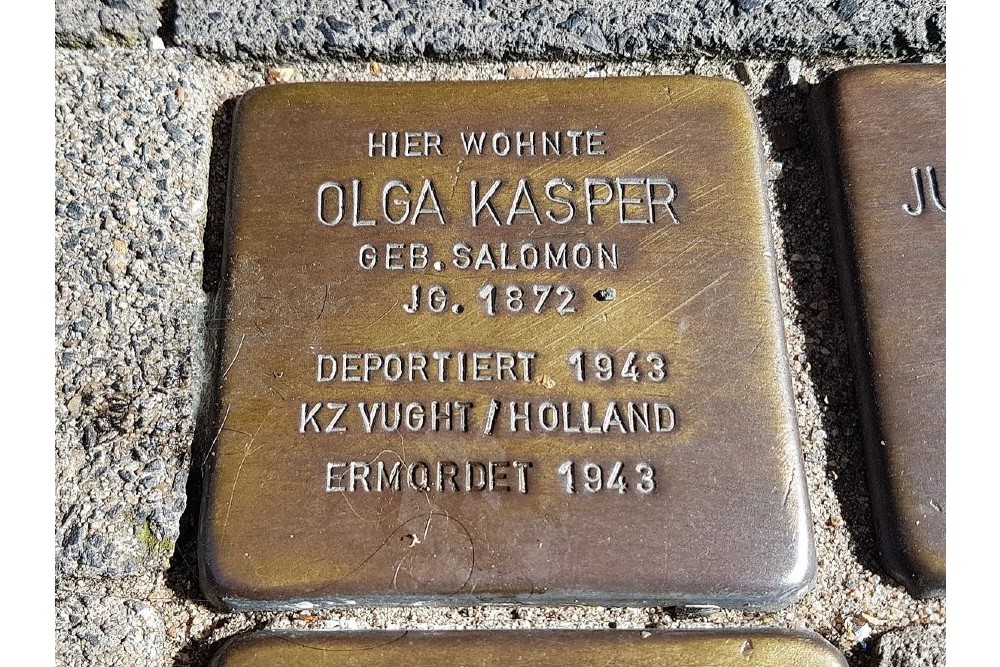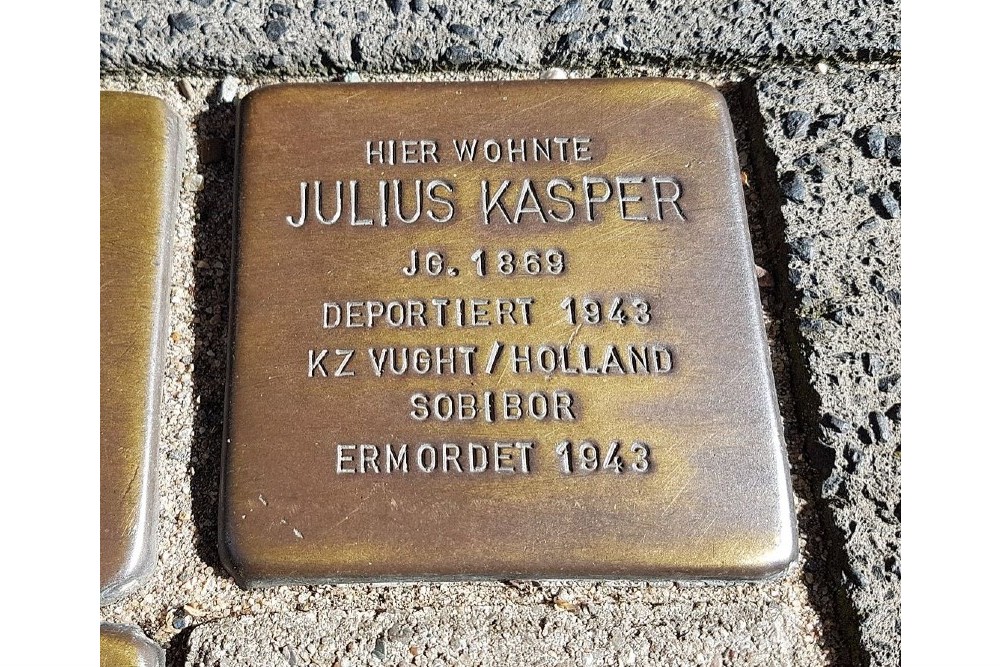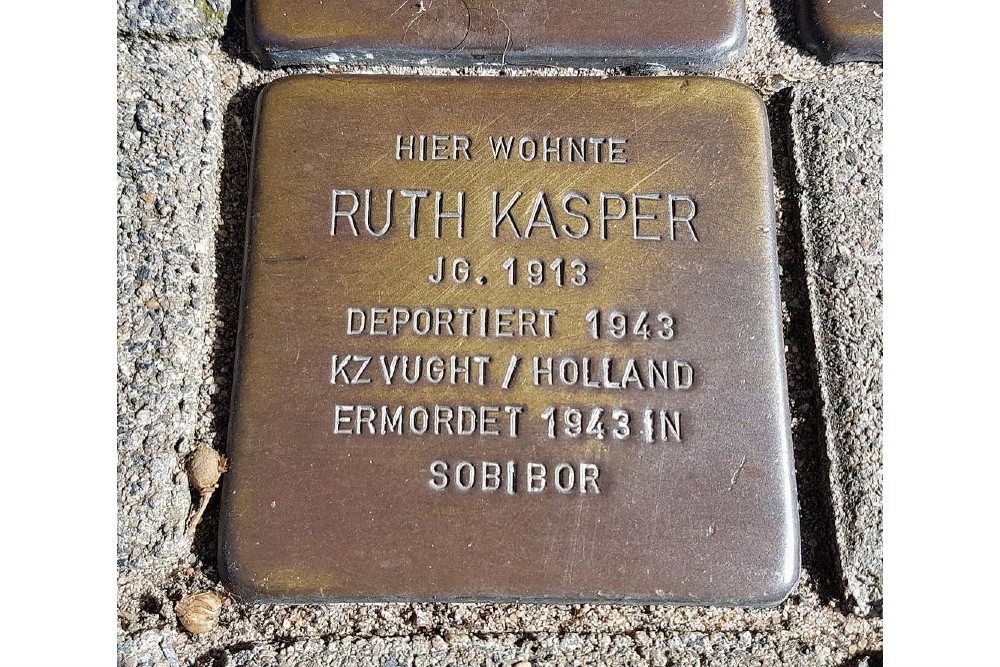Stumbling Stones Ludgeristraße 21
These small, brass, memorial plaques (Stolpersteine or stumbling stones) commemorate:
* Olga Kasper née Salomon, born 1872, deported 1943, camp Vught / Holland, murdered 1943.
* Julius Kasper, born 1869, deported 1943, camp Vught / Holland, Sobibor, murdered 1943.
* Ruth Kasper, born 1913, deported 1943, camp Vught / Holland, murdered 1943 in Sobibor.
Background
Julius Kasper and Olga Salomon married and had five children, including daughter Ruth Kasper. He and Olga moved to the Hochfeld section of Duisburg in 1903 and there opened the "Kasper & Co." textile factory. The family lived there for 26 years. In 1932 they moved to Ludgeristraße 21 but stayed only one year before fleeing to Rotterdam with daughter Ruth. After the Nazis invaded the Netherlands, Julius, Olga, and Ruth lived in difficult circumstances for almost three years in the Ermelo internment camp before they were deported. Sources are consistent that Julius and Olga Kasper were deported to the Vught (Herzogenbusch) concentration camp. Olga was killed there a few days after arrival. Julius Kasper was deported onward to the Sobibor death camp where he were murdered.
Sources are inconsistent about Ruth Kasper’s final days: some say she was deported and killed with Julius at Sobibor, but other records indicate she was deported to Westerbork and then from Westerbork on 31 August 1943 to Auschwitz and killed on 03 September 1943.
Stolpersteine for Julius and Olga Kasper’s son Hans Kasper and his family are in also Duisburg -- at Sternbuschweg 12.
"Stolpersteine" is an art project for Europe by Gunter Demnig to commemorate victims of National Socialism (Nazism). Stolpersteine (stumbling stones) are small, 10x10cm brass plaques placed in the pavement in front of the last voluntary residence of (mostly Jewish) victims who were murdered by the Nazis. Each plaque is engraved victim’s with the name, date of birth, and place (mostly a concentration camp) and date of death. By doing this, Gunter Demnig gives an individual memorial to each victim. One stone, one name, one person. He cites the Talmud: "A human being is forgotten only when his or her name is forgotten."
Do you have more information about this location? Inform us!
Source
- Text: Fedor de Vries & Anne Palmer
- Photos: Rene scaunce (1), Rene scaunce (2), Rene scaunce (3)
- Joods Monument
- Yad Vashem Central Database of Shoah Victims’ Names
- Stolpersteine in Duisburg, Band II, pp. 16-17
- Stolpersteine.eu
Nearby
Point of interest
Monument
- Memorial German Unionists - Duisburg
- Memorial Catholic Association - Duisburg
- Memorial Gottfried Könzgen - Duisburg
Cemetery
- Kaiserberg German War Cemetery - Duisburg
- War Graves Friedhof Sternbuschweg - Duisburg
- Mass Grave Victims Bombardment 1944 - Duisburg







